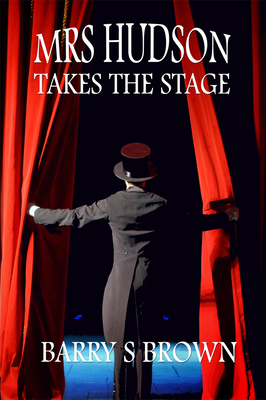
September, 1901. Fresh from a run of more than 260 performances in New York, the play, Sherlock Holmes, opens at London's Lyceum Theatre. In attendance are Mrs. Hudson, Dr. Watson and Holmes, the renowned detective attending in disguise, concerned that he is somewhat too renowned and thereby likely to be pestered for his opinion about a play he is determined to detest. As it turns out, his fears are unfounded. There is no opportunity to criticize, or even witness the play. Before the curtain goes up, Holmes will be called backstage to investigate the murder of the play's wardrobe mistress. As always, the figurehead of the Baker Street trio is mistaken for its true leader. Not to fear, Mrs. Hudson is on the case. She and her colleagues will have to sort through a range of suspects, including actors seeking more than cleaned and pressed costumes from the young woman, a landlord upset about the woman minding his questionable business, and members of the anarchist movement suspicious about her professed allegiance to their cause. In the course of the investigation, Mrs. Hudson will receive assistance from the author of the play's first draft, Dr. Arthur Conan Doyle, and will provide assistance to the juvenile actor playing the role of pageboy, Master Charles Chaplin.







